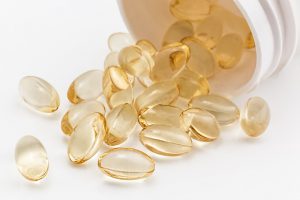Having proper eating habits and taking in all the necessary nutrients is essential to leading a healthy life. You have probably heard a lot of advice on this topic and you most likely know that there is a wide choice of dietary supplements that can help you improve your diet plan.
Supplements include vitamins, herbs, minerals and other dietary ingredients that can be found in the form of a tablet, pill, capsule, or even in liquid forms. They are part of many people’s diets to help fulfill the daily requirement of nutrients that they are lacking.
However, some health professionals seem to have doubts about whether it is necessary to take supplements. How can you know whether you should take them or not? Let’s discuss the possible answers to this question.
What do supplements do?
The main use of supplements, as their name suggests, is supplementing needed nutrients. It is believed that they can improve your health and prevent diseases. This, however, hasn’t been proven scientifically.
Who should take supplements?

Health professionals usually recommend taking supplements to those people who are dealing with nutritional deficiencies. Pregnant women, or women that plan on getting pregnant, and those practicing restrictive diets, such as vegans, should consider taking supplements. For example, vegans may lack B12 vitamin which is found in meat, fish, and dairy products. B12 deficiency can be the cause of depression, anemia, and problems connected to the nervous system. In cases such as this one, nutritionists may advise you to take a dietary supplement for the nutrient you are lacking.
Problems with supplements
The main problem with supplements is that people who don’t need them may use them too often. Many labels found on supplements claim that they can treat, prevent, and even cure many diseases or medical conditions, which may lead people to use them excessively. However, the health benefits of many supplements have not yet been confirmed scientifically. Furthermore, if you are taking some medication, the supplement may influence the effects of the drug.

To sum up, taking dietary supplements cannot hurt you if you follow the recommended daily amount. Deciding whether you should or shouldn’t take them depends on whether you are lacking some nutrients or not. If your doctor advises you to take them, then you should certainly take them.
If you have any other way of getting the needed nutrients other than using supplements, you should opt for that first. Nutrients that come from natural sources are usually regarded as better and more wholesome than those made in the laboratory. However, if you don’t have any other way of meeting your daily intake of nutrients, then you should consider supplementing.

